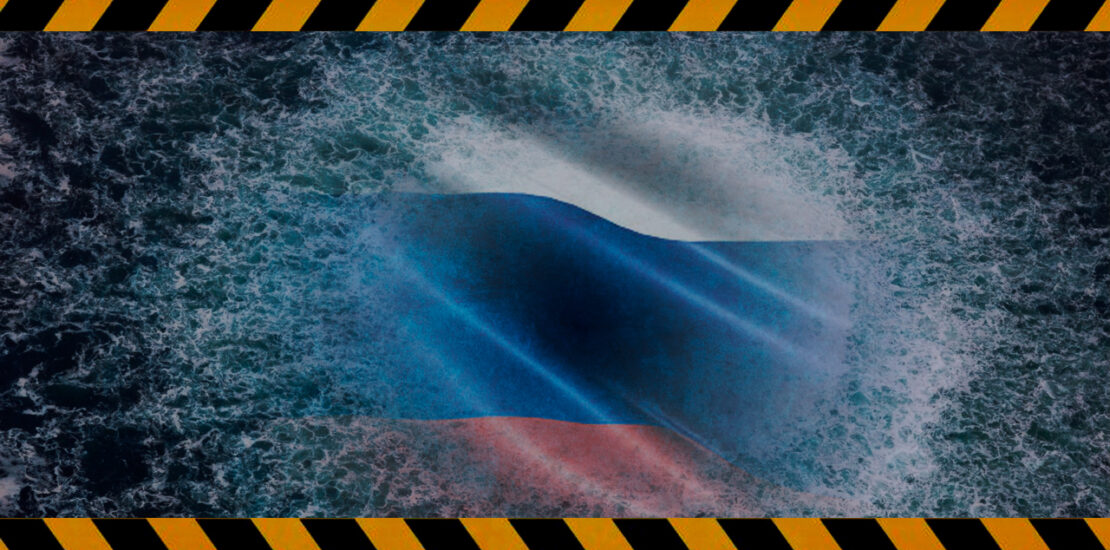- 4 octubre, 2022
- Posted by: Armando Nuricumbo
- Categoría: Europe, Global, Russia

In late September, at least four major explosions were registered along the gas pipelines Nordstream 1 & 2 that run underwater on the Baltic Sea between Russia and Germany. The pipelines are 51% owned by Russian state-controlled Gazprom, and the rest by German, French and Dutch energy companies.
By going underwater, the Nordstream network was the only direct gas supply that Russia had with Europe, as the rest of its pipelines pass first by Ukraine and Belarus, which charge Russia with high transit fees. The United States always opposed the operation of Nordstream because it gave Russia too much leverage over Europe, whereas Germany and France favored it as they always regarded Russia as part of the ‘European family’, and the EU could benefit from cheap Russian supplies.
The Nordstream 2 pipeline had been almost completed by 2022, but because of pressures from the US, and amid growing tensions in Ukraine, Germany cancelled the license to operate it a few days before the full-scale Russian invasion of Ukraine started on February 24. Later on, with the war escalating, Russia started to cut off gas supplies to Europe via its Nordstream 1 before suspending all flows in August, blaming Western sanctions for causing technical difficulties. That means that at the time of the explosions, which occurred on Danish and Swedish waters, both pipelines were not delivering gas to Europe, but it represents a direct attack on their territory.
The explosions provoked an enormous leak that severely damaged the ecosystem and forced a restriction on shipping and flying traffic over the southern area of the Baltic Sea. Moreover, the amount of gas that was released into the air amounted to 60% of Swedish total greenhouse gas emissions over a year. The explosions, which have been proven to be ‘non-accidental’, occurred just before the ceremonial launch of the Baltic Pipeline, a project for carrying gas from Norway to Poland, a key part of Europe’s efforts to diversify from Russian supplies. Additionally, this event will scupper any remaining expectations that Europe could receive gas via Nordstream 1 before winter if a new deal with Russia could have been made. Because of this, European gas prices rose over 10% on the news of the leaks, and will remain more than 200 percent higher than in September 2021.
So who is likely to be behind the explosions?
Germany and other countries received advance information from the US that an attack on the gas pipelines would take place a few weeks before it happened, and Joe Biden had previously announced that the US simply will not accept Nordstream 2 being put into operation. Even top Polish anti-Russian politician and former Foreign Minister, Radek Sikorski, who is married to American influential neconservative profile Anne Applebaum, supported this theory by tweeting shortly after the explosions a controversial “Thank you, US”. He later deleted this tweet. The problem with this hypothesis is that Europe had already decided to stop buying Russian gas for the future, and there was no Russian gas being supplied to Europe at that moment, so there was no need for USA to cut a supply source that was already stopped.
Another theory is that it could be anti-Kremlin groups, perhaps from Ukraine or in the EU, that want to revenge on Putin’s newest military mobilization of reservists, and its nuclear threat to drop such a bomb if the Ukrainian army, with the help of the West, attempts to retake Russian occupied territories in the Donbas region where a mock referendum over the decision to be annexated by Russia was organized. With this attack on Nordstream 1 and 2 pipelines, these groups would achieve to destroy the main ‘economic bridge’ that could still connect Russia with Europe in the future.
The third hypothesis is that Russia is behind the attack. This, in order to open a new energy war with the West and divert EU’s resources from Ukraine. The problem with this argument is that Nordstream has been Kremlin’s main energy project abroad which cost billions of dollars, that allows Russia to avoid paying transit fees in Eastern Europe and to keep a strong influence on German internal politics, which still tends to support an economic collaboration with Russia. However, because diplomatic relations with EU seem to have deteriorated permanently as long as Putin holds power, Russia could not care less about doing this kind of attack on European territory.
What is sure is that with the formal annexation by Russia of territories in the Donbas region, the nuclear threat if “motherland Russia is attacked”, massive mobilization of civilians into Russian army, and a new crisis over energy infrastructure in Europe, the war of Putin will only get more intense in the next few months. For the world, that means more supply chain disruption, more economic and political uncertainty, more inflation and additional stress to the global financial system. All that will have a negative impact towards the economic perspectives for 2023.
